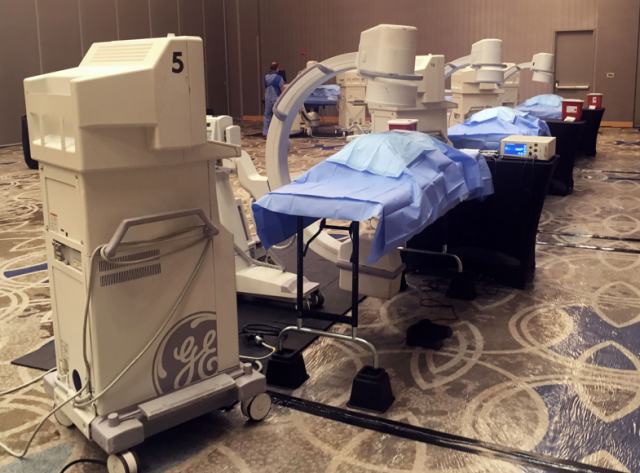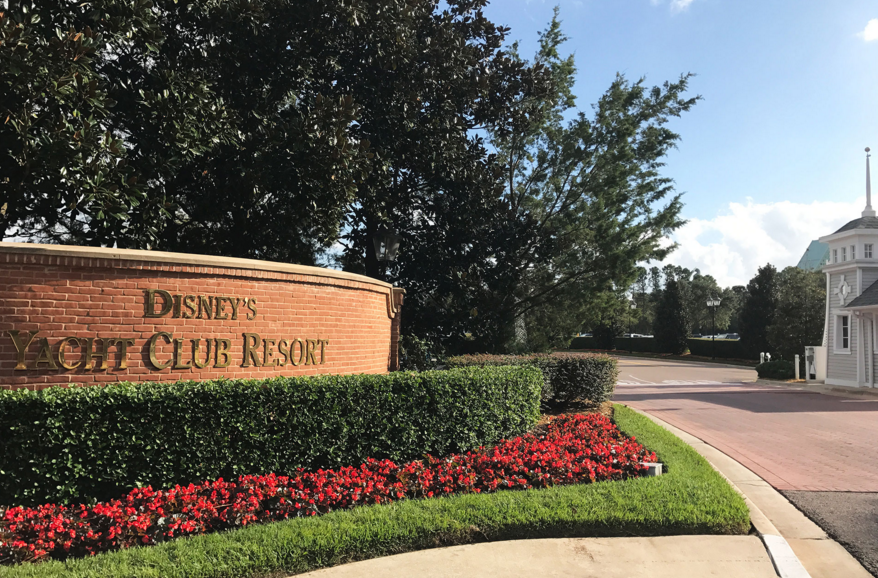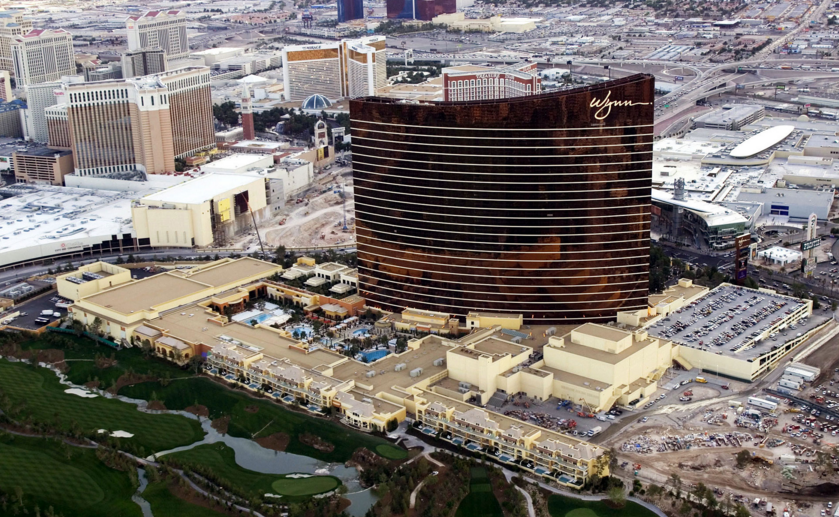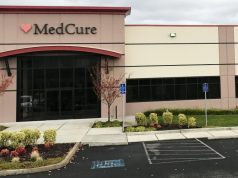
LAKE BUENA VISTA, Florida – Just outside the operating theater, the organizers of a medical conference wore Minnie Mouse ears.
Inside, as doctors practiced on three cadavers, blood from one of the human specimens seeped through a layer of wrapping.
“They leak,” a lab technician said of the bodies.
The sessions, held last month and attended by a Reuters reporter, weren’t at a hospital or medical school. They were part of a so-called cadaver lab – and the setting was a Florida resort. It was one of scores of such events over the past six years that have been held at a hotel or its convention center.
In this case, doctors practiced nerve root blocks and other procedures on cadavers in one of the Grand Harbor ballroom’s salons at Disney’s Yacht & Beach Club Resorts convention center. Online, Disney refers to its ballrooms as “regal and resplendent.” They’re often used for wedding receptions.
Disney did not respond to requests for comment for this article.
Medical training in the United States is usually done in secure lab facilities equipped specifically for such seminars. But not always. Reuters identified at least 90 cadaver labs that have taken place since 2012 at hotels or their convention centers in dozens of cities, from New York to San Diego. Some of the biggest names in the industry, from Hilton and Hyatt to Sheraton and Radisson, have hosted the events.
The cadavers used in these seminars are often procured through body brokers, organizations that acquire bodies donated to science and then sell or rent the parts for use in medical research and training.
Body brokers generally refer to themselves as “non-transplant tissue banks.” They are distinct, however, from the organ-and-tissue transplant industry, which the US government closely regulates. No federal law covers the sale or lease of cadavers or body parts used in research or education, such as those operated on at the Disney center. That industry is virtually unregulated.
Similarly, there is little, if any, regulation governing where seminars featuring cadavers and body parts can be held, although the federal government does have rules on how labs handle medical waste and bloodborne pathogens.
The World Health Organization says that, “in general, dead bodies pose no greater risk of infection than the person did while they were alive.”
To ensure safety, event organizers say they screen the cadavers for infectious diseases, such as HIV and hepatitis.
Diseases such as tuberculosis, however, cannot always be identified through screenings. And some medical professionals worry that some cadavers could spread antibiotic-resistant staph infections or Creutzfeldt-Jakob disease, a rare degenerative brain condition.
When the deceased are cut open, there’s an increased risk of a disease being transmitted to others, said Michael Osterholm, director of the Center for Infectious Disease Research and Policy at the University of Minnesota.
“I will be the first to acknowledge there have been no big outbreaks or situations that have occurred yet from a dead body,” Osterholm said. “But I am absolutely convinced it’s just a matter of time.”
There has been at least one instance of a body broker who allegedly failed to report positive results for hepatitis B in a cadaver sent to a medical conference. In 2011, broker Arthur Rathburn provided the head and neck of a diseased cadaver to a conference held at a Hyatt hotel in Cambridge, Massachusetts, authorities say. Although no one who attended the conference reported getting sick, Rathburn faces trial in January on charges of defrauding health care workers and lying to federal agents. He has pleaded not guilty.
The Hyatt chain has hosted at least 10 seminars that included cadavers since the 2011 incident, Reuters determined.
After Reuters asked about the cadaver labs, Hyatt spokeswoman Stephanie Lerdall said the hotel chain is now reviewing the guidance it provides hotels around “medical trainings of this kind.” She said Hyatt expects anyone using hotel facilities to “operate in a manner keeping with applicable health and safety protocols.”
FEW REGULATIONS
Cadaver labs are often part of medical association meetings for practitioners in fields ranging from spinal surgery to rhinoplasty. Or they are hosted by medical device companies who want doctors to try new products. The seminars are usually staffed by companies that run mobile labs. These companies often provide the donated bodies or body parts used by the doctors – such as torsos, hands, and legs – either from the company’s own donor program or from other non-transplant tissue banks.
Surgeons say no manikin or computer simulation can replicate the experience of practicing on a human specimen. And mobile lab providers say seminars at hotels and convention centers fill a gap. They allow many more practitioners access to training than could be accommodated at permanent lab facilities such as hospitals.
But regulations are few. The federal Centers for Disease Control and Prevention has no guidelines for seminars involving human body parts, a spokesman said. The Occupational Safety and Health Agency didn’t respond to questions about whether or how OSHA regulates such seminars.
The New York State Health Department said it does not issue permits for hotel cadaver labs. Its rules require rooms where cadavers and body parts are used for education or research to have biosafety features, such as a working sink. Even so, the department has never inspected any hotels that have held cadaver labs, spokesman Ben Rosen said.
That means safety precautions are largely up to hotels and lab providers.
The Hilton hotel chain has held at least 11 cadaver labs since 2012 in cities including New York, Chicago and San Diego. A Hilton policy posted online requires a seminar organizer to show it has the approval of OSHA and the local health department before holding an event involving cadavers.
A Hilton spokesman said the hotel chain requires those who rent its facilities for such seminars to prove they have insurance and to “follow all protocols recommended by federal, state or local health authorities. These requirements are uniquely tailored to the location and type of event,” the spokesman said, “and wherever possible, we specify required documentation.”
But few authorities grant permits for such events. Reuters surveyed six states where cadaver seminars have been regularly held. New York was the only one in which a state or local health department said it had any regulations covering such labs. Some were oblivious to the seminars.
“We have never heard of this,” said Rachael Kagan, a spokeswoman with the San Francisco Department of Public Health. “Are you sure it is true?”
It is. Reuters found at least four conferences held in San Francisco hotels since 2012 that advertised the use of cadavers.
“BONE PIECES FLYING”
Anatomy laboratories at universities have sanitation features, such as floors that can easily be cleaned. That helps to minimize the spread of bodily fluids and tissues while researchers work on a specimen. Most hotel ballrooms or conference centers are carpeted and lack sinks and other washing facilities, however.
That means the biosafety protocols at hotels sometimes fall well short of what university researchers require in their labs.
In October, doctors practiced on human torsos in a ballroom of the Hyatt Regency Jersey City on the Hudson in New Jersey. A Reuters reporter witnessed one participant holding out his arm and asking event attendants whether there was soap or a sanitary wipe in the room so he could clean himself. Told there weren’t, he left the ballroom, arm still outstretched.
And at the Disney lab last month, coffee and tea were available near one cadaver station. After a Reuters reporter asked if this were allowed, the refreshments were removed from the room.

Andrew Payer, a professor of anatomy at the University of Central Florida, said sinks are required in the school’s anatomy labs. Such labs also typically prohibit food and drink. The rationale: to reduce the risk of pathogens being transmitted through hand-to-mouth contact.
To guard against fluid or flesh falling on hotel carpets, seminar organizers typically lay plastic on the floors. Depending upon the procedures the doctors are practicing, other steps might be taken, hotel seminar organizers say.
“When they cut away the knee, there are bone pieces flying. So you cover up the walls,” said James McElroy, president of Bioskills Solutions, which provides equipment and support for training on cadavers.
At the conference at the Hyatt in Jersey City, plastic and other floor covering lay only in the areas just beneath the gurneys that held body parts. Elsewhere in the room, carpet was exposed.
New Jersey health officials don’t regulate these workshops. In neighboring New York, a health department spokesman said putting down plastic would not be acceptable because the material could puncture.
“Do shoes become contaminated on a carpet where a day later there’s going to be a wedding dance and you’ve got one-year-olds crawling on the floor?” asked Osterholm, the infectious diseases specialist. “All you need is one situation to go badly.”
Ronn Wade, director of the Maryland State Anatomy Board, said plastic floor coverings wouldn’t protect against airborne pathogens either.
Hotels and seminar providers said only lab technicians handle cleanup, and medical waste is disposed of through a biohazard company. But mistakes can be made.
“We had a situation where there was a bin left that had blood-stained linens and plastic that was left in a meeting room and was not picked up” after a rhinoplasty lab, said Vince Fattore, director of events management at the Sheraton Grand Chicago. Another Sheraton employee cordoned off the area around the bin, which also contained syringes, Fattore recalled. He said the hotel called the conference organizer to have the sealed bin collected.
Despite that episode, Fattore said the hotel has two more cadaver conferences on the schedule – one in January and another in March. “We’re here to serve the customer, first and foremost,” he said.
“I’m not trying to sugarcoat it by any means. I know that there’s definitely danger there and there could be cross-contamination in some cases,” Fattore said. “That’s why we take it very seriously.”
A Sheraton Hotels & Resorts vice president, Indy Adenaw, said the chain allows each hotel “to accept or decline business on a case-by-case basis as they see fit.”
“OPERATE WITH THE STARS!”
Holding cadaver labs in hotels and their convention centers also raises concerns about protecting the dignity of the dead.
“I find it altogether unacceptable that these courses could be held in a hotel setting,” said Sabine Hildebrandt, an anatomist with a research interest in ethics at Boston Children’s Hospital/Harvard Medical School. She said she fears that the experience might desensitize even veteran doctors to the need to treat bodies, living or dead, with dignity.
A 2016 gynecology symposium in the hotel convention center at Orlando’s Rosen Shingle Creek, for example, advertised “Operate with the Stars!” There, “three lucky attendees” were selected to go on stage to be mentored through a procedure on a cadaver.
A spokeswoman for the the group that held the conference said that “thousands of surgeons can watch and learn from this demonstration.”
A media representative for the Rosen Shingle Creek said she could not comment.
The location of the seminars poses another challenge: the possibility that hotel patrons – adults and children – could unexpectedly be exposed to disturbing scenes.
Hotels surveyed by Reuters say they have not fielded complaints from guests, and seminar organizers say that access to the rooms where cadavers are used is restricted.
The levels of security vary.
At the Disney resort in November, a reporter covering the conference was able to watch two seminar sessions before being told she was not allowed in the room.
And in June, the ballroom doors of the 5-star Wynn Las Vegas Hotel were left open after the start of an orthopedic-surgery lab at a medical convention. A reporter saw uncovered human torsos from the hall.

Wynn Resorts said the organizers had rented the entire convention space for the lab. “There was no expectation that anyone other than convention attendees would be in the convention area,” Michael Weaver, chief marketing officer, said in a statement. He said Wynn policies “prohibit the general public from entering any meeting room being used for medical training events.”
Lab providers and hotel staff have different ways of protecting guests from accidental encounters with gruesome spectacles. Most said they used the hotel’s loading dock and freight elevators to avoid transporting specimens through areas frequented by the public. But not all are so careful.
Paul Kraetsch said he was working at the front desk of the Radisson Hotel Fresno Conference Center in California when it hosted a cadaver lab in 2015. The seminar organizers who carried in the cadavers “just brought them up through the main elevator, which I found pretty shocking,” Kraetsch said.
The Radisson chain said it has no specific policy on medical events. But the safety of guests and employees is the “highest priority,” said Ben Gardeen, a spokesman for the company.
“We would also expect our hotels to take the proper preventive measures to ensure these events don’t create uncomfortable situations for other guests in the hotel,” he said.




